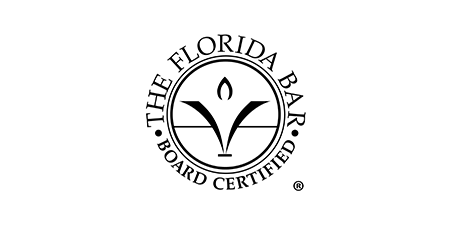TRUST A TOP PERSONAL INJURY LAW FIRM
Hospital Negligence Attorneys
When you go to a hospital for an emergency or a planned procedure, you expect that you will be safe. You rely on healthcare facilities to act dutifully in making your health and safety a priority. If you feel like you or a loved one was not properly cared for, contact us today for a FREE case review.




















Miami Hospital Negligence Attorneys Fighting for Your Rights
Floridians deserve to feel assured that when they go to a hospital for an emergency or a planned procedure they will be safe and receive appropriate medical treatment. We all rely on healthcare facilities to act responsibly in making our health and safety a priority. Unfortunately, that is not always the case in Florida hospitals. When Florida hospitals fail to live up to their responsibilities, Panter, Panter & Sampedro steps in. Our experienced hospital negligence attorneys will fight for your rights every step of the way.
What is Considered Hospital Negligence?
Hospitals, like other medical providers in the State of Florida, are responsible for providing medical care and treatment that meets the standard of care. The standard of care legally means providing the treatment that a reasonable medical provider, in this instance another hospital, would provide under similar circumstances. Essentially, Florida hospitals and their employees are required by law to do what a reasonable hospital or hospital employee would do under like conditions. Of course, they must also avoid doing what reasonable medical providers would likewise not do. Care below the legal standard of care is negligent or sometimes referred to as medical malpractice.
A hospital may be found liable for the negligence of a hospital employee under a legal theory known as “respondeat superior”, a Latin term meaning “let the master answer”. In other words, a hospital may be found liable if a medical professional employed by the hospital acts negligently and injures a patient. As long as the hospital employee was working within their duties of their employment an individual may sue the hospital for the harm their employee caused.
Historically, hospitals employed most of the medical providers that treated the hospital’s patients. However, these days many hospital workers are labeled by the hospital or by their contracts as “independent contractors.” Like any other person who hires an independent contractor over whom they have little control, under some circumstances a hospital may not be held liable for the negligence of their independent contractors. Many people feel that hospitals seek to limit their own responsibility for medical errors occurring within the hospital by labeling workers as “independent contractors.”
The law in Florida though does not blindly accept the labels that hospitals and their workers assign. The language of hospital contracts does not answer the question: who is an independent contractor under the law. Experienced hospital negligence attorneys like those at Panter, Panter & Sampedro will investigate and challenge the labels hospitals use to try to limit their responsibility for medical errors that occur at hospitals.
Some hospital workers are agents of the hospital for which the hospital remains legally responsible. Others may be what the law describes as “apparent agents” of the hospital. Issues of apparent agency and agency arise in nearly all hospital negligence cases. Where a hospital represents to the public or to a specific patient that the doctors and nurses are hospital employees, the hospital may be responsible for the actions of what the law calls their apparent agent. Our lawyers will look to the terms of any written agreements and the actual behavior of the hospital and its workers to show whether an agency or apparent relationship exists.
Panter, Panter & Sampedro Gets Hospital Negligence Victims the Compensation they Deserve
The Panter, Panter, and Sampedro legal team has helped many hospital negligence victims around Miami, and in the entire State of Florida get the compensation they deserve.
Our Hospital Negligence Experience
Hospital negligence litigation requires a trial attorney to prove through expert witness testimony that accepted standards of care were violated and that those violations led to injury or death. For over thirty years, Panter, Panter, and Sampedro’s dedicated hospital negligence attorneys have been working one-on-one with clients to successfully get them the justice, recovery, and compensation they deserve. Our medical malpractice legal team seeks out the most respected medical experts to explain to the jury exactly what went wrong and how the tragic medical mistake could have been avoided with appropriate medical treatment.
Our Results Speak for Themselves
Panter, Panter, and Sampedro has obtained verdicts and settlements in excess of $100 million for our clients. Our legal team has a strong record of verdicts and negotiated settlements for medical malpractice cases involving:
- Birth injuries
- Surgical errors
- Emergency room errors
- OB-GYN errors
- Pharmacy and medication administration errors
- Failure to diagnose or misdiagnosis
- Defective products
- Nursing home negligence
*On March 24, 2023, Governor Ron DeSantis signed House Bill (HB) 837 reducing Florida’s statute of limitations for general negligence cases from four years to two years. In other words, a lawsuit alleging negligence which accrued after March 24, 2023 must now be filed within two years of the date of the alleged negligence or the claim will be forever barred.
Speak To A South Florida Accident & Injury Lawsuit Attorney Now
Get Your FREE Case Review
Personal Injury
Frequently Asked Questions
Do I Qualify for a Hospital Negligence Lawsuit?
To qualify for a hospital negligence lawsuit, an individual must be able to prove that a medical professional employed by a hospital failed to provide the medical standard of care and that their negligence led to serious injury or death. There are many different situations that may lead to litigation, including, but not limited to:
- Surgical errors
- Wrong diagnosis
- Delayed diagnosis
- Failure to sanitize equipment
- Being given the wrong medication
- Being given the wrong dosage
- Infections arising from improper cleaning of wounds
- Misread x-ray, slides, or ultrasounds
- Medical device errors
What is the Hospital Negligence Lawsuit Process?
Florida hospitals have lobbied the State Legislature and fought hard to raise roadblocks to stop or slow victims of hospital negligence who seek legal redress. Unlike most negligence actions, to pursue a lawsuit against a Florida hospital, an injured patient or their family must first engage in a costly and time-consuming presuit investigation process. Florida law was amended at the request of hospital industry advocates to require negligence victims to secure the medical opinion of a medical professional licensed with the same specialty as the potential defendant in a medical malpractice case. That medical opinion along with all available medical records must be shared with the potential defendants during a formal 90-day pre-suit investigation process.
If after the pre-suit investigation is completed, the parties are unable to reach agreement and settle the claims, a lawsuit would be filed on behalf of the injured patient. Then, both the plaintiff and defendant must share information through a process called discovery, which may include requests for depositions, documentation, and interrogations. If the two parties agree to a settlement, the case does not proceed to a trial.
However, if no settlement is reached the trial will commence as scheduled. During the trial, the plaintiff will present compelling evidence showing what the standard of care required and how the medical professional did not provide the appropriate care or otherwise acted in a negligent or careless manner, and that their actions led to serious injury or death. The defendant will also have an opportunity to prove that they provided adequate care to the patient.
What Damages Can Be Recovered in a Hospital Negligence Lawsuit?
According to the law, an injured patient may collect economic damages, non-economic damages, and in rare cases punitive damages.
Also called “special damages”, economic damages are damages that can be calculated as a close or exact financial amount. Economic damages include any lost income and lost earning capacity, the cost of necessary medical treatment needed to repair the initial injury and other financial losses that may be attributed to the negligent actions of a medical professional. The damages consider past and future economic damages. Expert witnesses are also sometimes called to help explain how to calculate economic damages to a jury.
Non-economic or “general” damages are described as subjective by nature and therefore cannot be directly calculated as an exact financial amount. Examples of non-economic damages include pain and suffering, as well as “loss of consortium”. Pain and suffering may be described as the loss of enjoyment of life, loss of future earning capacity, and physical and mental pain. Loss of consortium typically refers to the intangible benefits the injured person provided to their legally married spouse. To arrive at a dollar value, the patient and others need to provide evidence about the pain and suffering the patient experienced.
In cases when the actions of a healthcare professional were not merely negligent but were intentional or wantonly reckless, a court may allow a jury to consider and award punitive damages against a Florida hospital. Punitive damages are not intended to compensate victims but are instead meant to discourage similar actions in the future by the negligent medical professional and others in their industry. The exact amount is decided by the court but may be capped by Florida law under some circumstances.
What is the Hospital Negligence Statute of Limitations in Florida?
On March 24, 2023, Governor Ron DeSantis signed House Bill (HB) 837 reducing Florida’s statute of limitations for general negligence cases from four years to two years. In other words, a lawsuit alleging negligence which accrued after March 24, 2023 must now be filed within two years of the date of the alleged negligence or the claim will be forever barred.
How is a Hospital Negligence Attorney Paid?
Most hospital negligence attorneys will represent their clients under a contingency arrangement. Under this arrangement, an attorney is paid a percentage of the award or settlement. The attorney does not collect a fee if their client does not receive an award or settlement. That fee is regulated by the Florida Bar.
What Our Clients Are Saying
Reviews & Testimonials





305-662-6178
info@panterlaw.com
Treating Clients Like Family For Over 3o Years
If you have a serious injury or devastating loss we can help you get needed compensation as soon as possible.
Results-Driven
We are recognized nationwide for forging strong client relationships and delivering victories in some of the largest personal injury cases in South Florida. We’re proud to have recovered tens of millions of dollars for our clients.
Experience
For more than three decades, our experienced trial attorneys have worked one-on-one with clients to successfully secure millions of dollars in compensation for their injuries and other losses.
Dedicated Service
We leverage our legal talent and uncompromising personal attention with each client to maximize recovery potential. When you work with us, you’re family.
